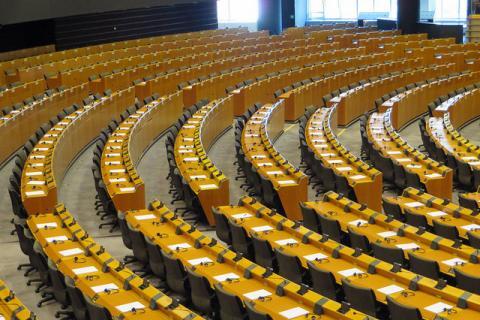Letter to Christian Ehler and European Parliament members on the evolution of SSH in Horizon2020

The members of the European Alliance for Social Sciences and the Humanities (EASSH) have read with great interest the letter that you sent last August to the European Commission and which contains many very valuable questions regarding the practical implementation of Horizon 2020. We share your concerns and we are worried that a number of management considerations applied by the Commission may considerably weaken the potential of European science to adequately address key societal issues affecting Europe today.
EASSH is particularly concerned with the evolution of SSH under Horizon 2020 and this is why we are grateful that your letter raised the issue of SSH in ocietal Challenge 6 under item 22. Indeed, whereas one of the cornerstones of the European research is its capacity to make people and ideas travel in Europe and outside, the European Commission seems to have decided that the share of the cooperative research budget for social, political, cultural and economic matters should be drastically reduced. While the budget for SSH under FP7 was €623m for the period 2007-2013, our current calculations extrapolating from the first two Biennal Work Programmes show that while the headline budget is around €630m, the budget for core research is less than €450m. Nearly 30% of the allocation is diverted to ‘other activities’. While this would be a matter of concern in itself, we draw attention to the fact that other societal challenges are not subject to a similar degree of ‘hollowing out’.
How has this been made possible? All the MEPs who voted on Horizon 2020 as well as the members of the Council were convinced that Societal Challenge 6 was to support SSH research. The members of the Council for instance took great pain to withdraw a lot of the technological/ICT topics that made ICT appear as the only and favoured solution for inclusiveness and innovation. Since Horizon 2020 was adopted, the European Commission downsized the importance of SSH in Societal Challenge 6 and increased the budget for ICT research; despite the legal basis. In terms of the quality and impacts of the democratic and open procedures for the EU, MEPs should be aware of this situation and may wish to question it. One of the consequences is that the Programme Committee representing the Member States now has immense difficulties to accept the proposals made by the Commission in the Work Programme of Societal Challenge 6 because the Commission proposals do not conform with the legal basis adopted by the European Parliament and the Council.
The Commission often answers by saying that SSH should “get out of their silos”, “are embedded in all other societal challenges” and that “there should not be an SSH societal challenge because there is not one for biology, physics or mathematics”. It is obvious that such statements are merely political and have no relationship with reality, nor with the positions expressed by the EP and the Council at the time of the adoption of Horizon 2020. Of course, SSH have evolved tremendously over the last 20 years and SSH researchers have left their silos. One of the key characteristics of SSH under FP6 and FP7 has been the interdisciplinarity of SSH to tackle complex issues like migration, inequalities, addiction or social exclusion for instance. The Commission has tried to divert the attention of the SSH communities by promising more interdisciplinary research under the “cross-cutting” efforts under Horizon 2020. There is no doubt that EASSH is in favour of such efforts, provided they are done intelligently and in the long term. This is not yet the case; it is clear that the Commission promised more than it could hold in terms of SSH integration under the first two WPs 2014-2015 and 2016-2017. A lot more could have been done if the European Commission were minded to implement a serious strategy for interdisciplinarity.
EASSH believes that cooperative and comparative research must take place in areas like unemployment, growth, EU governance and crisis (economic, external, policy, etc;), democracy and social inclusion in Europe and neighbourhood, addiction, attitudes, behaviours and comparative policies towards climate change, gender balance, radicalization of young people and terrorism, tolerance and migration, macro-economic balances and so on which occupy the lives of all European citizens every day. Such cooperative and comparative research deserves a well-conceived and well-funded Societal Challenge 6 under Horizon 2020, as it will enlighten policy making and the work of many Directorate Generals of the Commission, such as DG EMPL, EAC, ECFIN, REGIO, ENV, CLIMA, DEVCO, CNECT, SANTE and of course the EEAS. This is your intention but at this moment in time it is far from reality. We therefore ask you to request immediately the Commission devote sufficient budget for SSH research under Societal Challenge 6 in order to work on these fundamental societal problems that affect the EU citizens, in conformity with your intentions under Horizon 2020.
EASSH obviously remains at your disposal for further constructive exchanges on the situation of SSH at European level, in particular on strategies, processes and contents under Horizon 2020.
Yours sincerely,
Olivier Bouin, Poul Holm, Theo Wübbels
EASSH Executive Committee